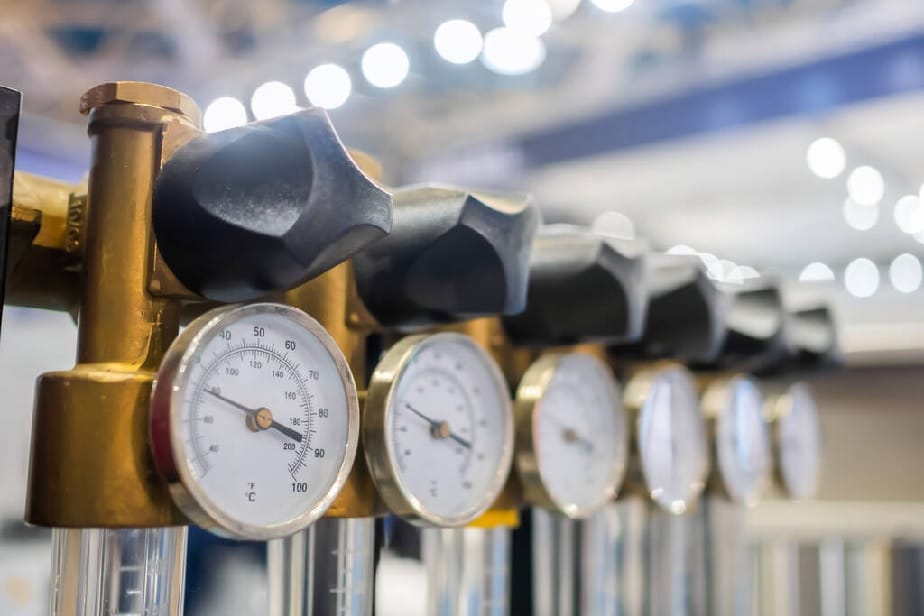Unlock the fundamentals of flow meters with our guide. Learn about measuring liquid& gas flow rates efficiently and accurately. Your complete guide awaits!
Flow meters are indispensable tools in a wide range of industries, from oil and gas to water treatment and pharmaceuticals. These devices measure the rate at which liquids or gases move through a system, providing critical data for maintaining efficiency, safety and operational performance. This comprehensive guide explores the principles, types, applications and considerations of flow meters to help you better understand their role in modern processes.
Understanding Flow Meters and Their Importance
At its core, a flow meter measures the volume or mass of a fluid be it liquid or gas traveling through a pipe or conduit over a specific period. These measurements are essential for applications where precise control of fluid flow is critical. For example in water supply systems, accurate flow measurement ensures optimal distribution, while in manufacturing, it guarantees product quality by maintaining consistent flow rates.
Without reliable flow meters, businesses could face inefficiencies, safety hazards or compliance issues. The ability to monitor and regulate fluid flow in real-time is a cornerstone of operational excellence.
Types of Flow Meters and How They Work
Flow meters come in various designs, each suited to different applications and fluid characteristics. Below are some of the most common types:
- Differential Pressure Flow Meters
Differential pressure (DP) flow meters operate on Bernoulli’s principle, which relates the pressure difference in a fluid to its velocity. They use primary elements like orifice plates, venturi tubes, or flow nozzles to create a pressure drop. The pressure difference is then measured and used to calculate the flow rate. These meters are widely used in water, steam, and gas applications due to their simplicity and reliability.
- Coriolis Flow Meters
Coriolis flow meters measure mass flow by detecting changes in vibration frequency caused by fluid movement through a vibrating tube. These meters provide highly accurate readings and are ideal for applications requiring precise mass flow measurement, such as in the chemical and food industries.
- Magnetic Flow Meters
Magnetic flow meters, or mag meters, work based on Faraday’s law of electromagnetic induction. When a conductive liquid flows through a magnetic field, it generates a voltage proportional to the flow rate. These meters are excellent for water and wastewater management, as they have no moving parts and can handle slurries or dirty fluids effectively.
- Ultrasonic Flow Meters
Ultrasonic flow meters use sound waves to measure fluid velocity. Transit-time ultrasonic meters compare the time it takes for sound waves to travel upstream and downstream, while Doppler meters measure frequency shifts caused by fluid movement. These meters are non-intrusive and ideal for applications involving large pipes or difficult-to-access systems.
- Turbine Flow Meters
Turbine flow meters use a rotor or turbine placed in the fluid path. As the fluid flows, it spins the rotor, and the rotational speed is proportional to the flow rate. These meters are commonly used in petroleum and gas applications for their accuracy and ability to handle high-pressure environments.
- Thermal Flow Meters
Thermal flow meters measure flow by calculating the amount of heat dissipated from a heated sensor into the fluid stream. They are particularly useful for monitoring gases in low-flow applications like leak detection or process control.
Choosing the Right Flow Meter
Selecting the appropriate flow meter depends on various factors, including the type of fluid, flow conditions, and system requirements. Key considerations include:
- Fluid Properties: Is the fluid a liquid, gas, or slurry? Is it conductive, corrosive, or abrasive?
- Flow Range and Accuracy: Determine the required flow measurement range and the level of accuracy needed.
- Operating Conditions: Consider temperature, pressure, and environmental factors that could affect performance.
- Installation Requirements: Evaluate space constraints, pipe orientation, and maintenance accessibility.
Consulting with flow meter manufacturers or experts can help ensure you choose the best option for your application.
Applications Across Industries
Flow meters are indispensable across numerous sectors. In energy production, they monitor fuel flow to optimize combustion efficiency. In water treatment, they track water usage and detect leaks. In the pharmaceutical industry, precise flow measurement ensures the consistency of drug formulations. These devices also play a critical role in HVAC systems, ensuring the correct flow of refrigerants and coolants.
The versatility of flow meters underscores their importance in modern technology and infrastructure.
Advancements in Flow Measurement Technology
The evolution of flow measurement technology has led to smarter and more efficient flow meters. Innovations like IoT-enabled meters allow real-time monitoring and remote control through cloud-based systems. These advancements improve accuracy, reduce downtime and enable predictive maintenance, further enhancing operational efficiency.
Conclusion
Flow meters are essential tools for measuring and controlling fluid flow in countless applications. With a variety of types available, each designed for specific needs, selecting the right flow meter requires careful consideration of fluid properties, operating conditions and system requirements. As technology continues to advance, flow meters will undoubtedly become even more precise and adaptable, driving efficiency and innovation across industries.
Whether you’re managing a municipal water supply, operating a chemical plant or designing an HVAC system, understanding flow meters is crucial to achieving operational excellence and sustainability.

